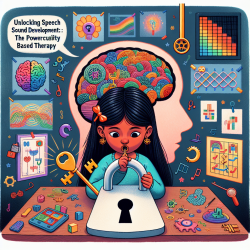As a practitioner in the field of special education and online therapy, staying updated with the latest research and methodologies is crucial. One surprising source of valuable insights comes from the aviation industry. The research article "Aviation and Intervention" by Ruwantissa Abeyratne offers groundbreaking findings that can be adapted to enhance your therapy skills and encourage further research.
What Can We Learn from Aviation?
The aviation industry is known for its rigorous standards and protocols, ensuring safety and efficiency. This approach can be mirrored in the realm of online therapy to improve outcomes for students. Here are some key takeaways from the research:
- Structured Protocols: Just as aviation relies on structured protocols to manage complex systems, implementing structured therapy protocols can lead to more consistent and reliable outcomes.
- Continuous Monitoring: In aviation, continuous monitoring of systems ensures safety. Similarly, continuous assessment and monitoring of students' progress can help in making timely interventions.
- Data-Driven Decisions: Aviation decisions are data-driven, which can be translated into using data analytics in therapy to track progress and adjust strategies accordingly.
- Risk Management: Understanding and managing risks is a cornerstone of aviation. In therapy, being proactive in identifying potential challenges and having contingency plans can improve the resilience of therapy plans.
Encouraging Further Research
While the insights from aviation are invaluable, it’s essential to encourage further research within the field of special education and online therapy. Here are some steps you can take:
- Collaborate with Researchers: Engage with academic institutions to explore collaborative research opportunities.
- Stay Updated: Regularly review the latest research articles and findings in both aviation and therapy fields.
- Experiment and Innovate: Don’t hesitate to implement new strategies and document their outcomes to contribute to the body of knowledge.
Conclusion
The aviation industry's meticulous approach to safety, monitoring, and data-driven decision-making can offer valuable lessons for improving therapy practices. By integrating these insights and encouraging further research, practitioners can enhance their skills and provide better outcomes for their students.
To read the original research paper, please follow this link: Aviation and Intervention










